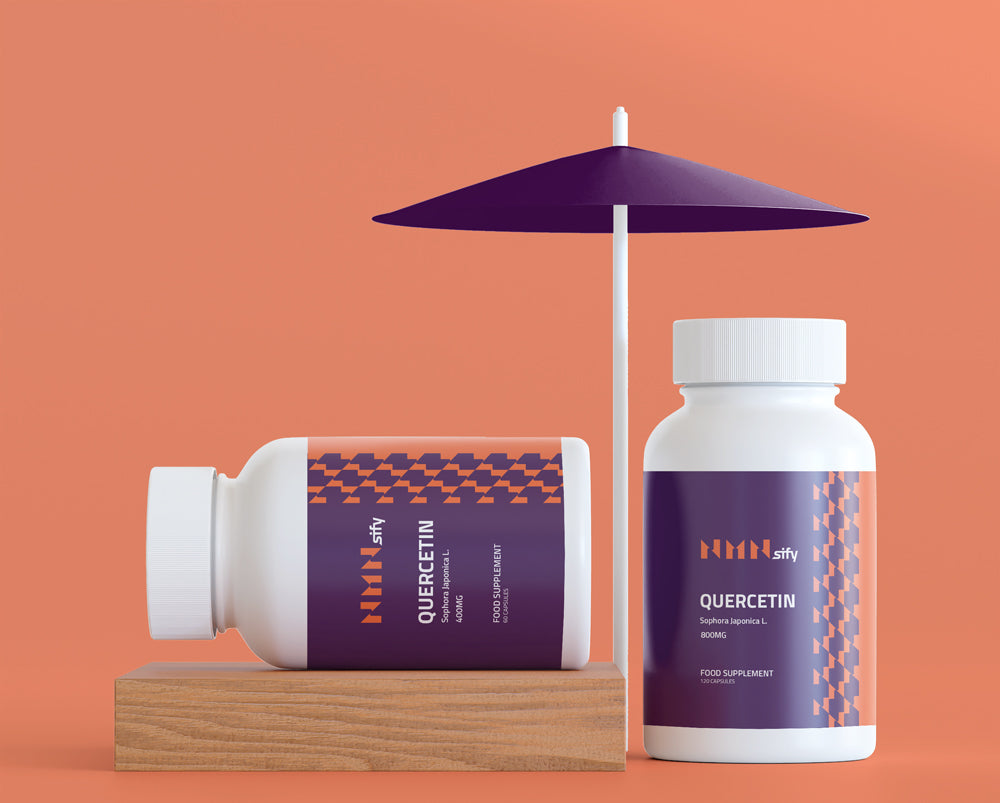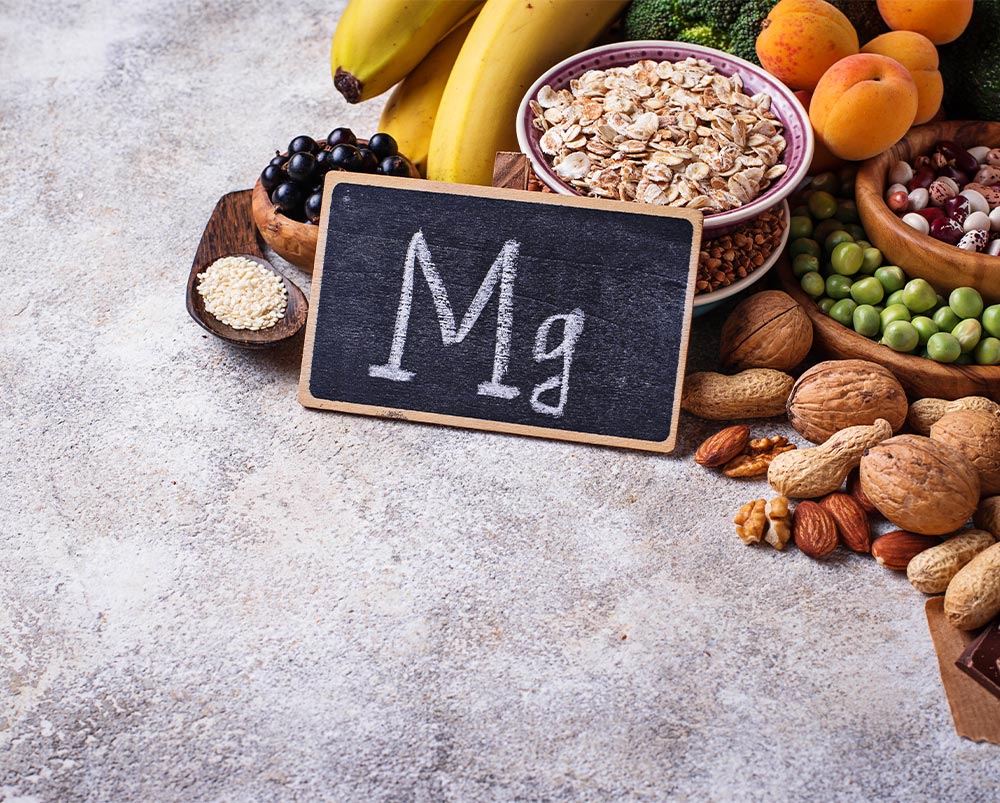Quercetin is an important nutrient and plays a vital role in keeping our bodies healthy. Unfortunately, it is not as popular as most of the other available supplementation and doesn’t get enough attention.
What are the benefits of Quercetin?
Quercetin is a plant-based compound that has a variety of potential health benefits. It is found in a variety of fruits and vegetables, including onions, apples, and berries. Quercetin capsules, such as quercetin complex, are available as a dietary supplement. Quercetin capsules are sometimes taken to help with respiratory conditions such as allergies and exercise-induced asthma. Quercetin is also thought to have anti-inflammatory and antioxidant effects. Some people take quercetin supplements to help prevent degenerative diseases such as cancer. For example, Quercetin supplement has been shown to reduce inflammation, improve heart health, and boost immunity. Additionally, quercetin may also help to enhance exercise performance and protect against exercise-induced oxidative stress. Bromelain, an enzyme found in pineapples, is often combined with quercetin to enhance its absorption and effectiveness.

But how exactly does Quercetin work?
Let's take a closer look at the science behind this nutrient to see how it can benefit your health, especially in the context of metabolic syndrome. As an antioxidant, quercetin scavenges harmful toxins and byproducts that can damage cells. This protects cells from oxidative stress, which is linked to many chronic diseases. In addition to its antioxidant effects, quercetin also has anti-inflammatory properties. This means that it can help to reduce inflammation throughout the body. Quercetin's anti-inflammatory effects may be particularly beneficial for heart health. Inflammation is a major risk factor for heart disease, and high potency quercetin supplementation has been shown to reduce markers of inflammation in people with cardiovascular disease. Additionally, quercetin has been shown to boost immune function and may even help prevent cancer by acting as a plant pigment.
When to take quercetin supplements
Quercetin supplements are a popular choice among those seeking to improve their overall health. While many people take quercetin supplements daily, there is actually no specific time of day that is best for taking them. It's important to note that the effectiveness of quercetin supplements may vary from person to person, and it's always best to consult with a healthcare professional before starting any new supplement regimen. Additionally, incorporating quercetin-rich foods into your diet can provide similar health benefits as taking supplements.
What are the side effects of Quercetin?
Quercetin supplements are generally well tolerated, but they can cause some side effects including nausea, vomiting, and headache. There are other few potential side effects of quercetin, including upset stomach, headache, and dizziness. These side effects are typically mild and go away on their own. People with allergies to plants in the daisy family (such as ragweed) may also be allergic to quercetin. With proper care and caution, quercetin can be a great addition to your daily routine and help you maintain your health and well-being. Also, quercetin can interact with some blood pressure medications, so be sure to consider this before taking the Quercetin supplement.
Quercetin Dosage
Quercetin is the most abundant flavonoid and a powerful antioxidant, specifically quercetin dihydrate, that can help protect your body from disease and promote overall health. By adding it to your diet, you can enjoy its many benefits, including protection from free radical damage, improved immune function, reduced inflammation, and possibly even cancer prevention. Quercetin supplements are available in capsules and the typical dosage is 400 mg per day, so we suggest starting slowly with a low dose and increasing gradually as needed.
Quercetin 400 mg capsule, High Strength Flavonoid
Quercetin is one of the most popular flavonoids found in fruits, vegetables, and herbs. It has been studied for its potential health benefits, including antioxidant and anti-inflammatory effects, and is an important component of a healthy lifestyle. Quercetin 400 milligrams is a high strength flavonoid supplement that can help support a healthy immune system and may also provide relief from allergy symptoms. This supplement is especially beneficial for those who do not consume enough quercetin-rich foods in their daily diet or those who need an extra boost of this powerful flavonoid for optimal health.

Conclusion
By supplementing with quercetin food supplements, you can benefit from its many health-promoting properties, including flavonoid antioxidants. It can help reduce inflammation, support your immune system, and provide antioxidants to help protect you from disease and infection. Quercetin may even improve your brain health and cognitive function. As with any supplement, it's important to do your research, talk to your healthcare provider, and find a reputable source for your quercetin. With the right precautions, you can enjoy all of the benefits that quercetin has to offer!
Frequently Asked Questions (FAQ)
What is Quercetin UK?
Quercetin UK is a natural compound found in various fruits, vegetables, and grains. It belongs to a class of plant compounds called flavonoids, which are known for their powerful antioxidant properties. Quercetin UK is particularly abundant in foods like onions, apples, berries, and leafy greens.
What is quercetin UK used for?
Quercetin UK has various health benefits, including antioxidant and anti-inflammatory effects that support the immune system and reduce inflammation. It may also improve brain health, provide allergy relief, and act as a natural remedy for hay fever.
Does Quercetin supplement really work?
Yes, Quercetin supplements have been shown to be effective in providing a range of health benefits.
Is Quercetin UK safe to use?
Quercetin supplement UK is generally considered safe for most people when taken orally as a supplement. However, like any supplement, it's important to use caution and follow the recommended dosage instructions.
References:
Health effects of quercetin: from antioxidant to nutraceutical





Leave a comment (all fields required)